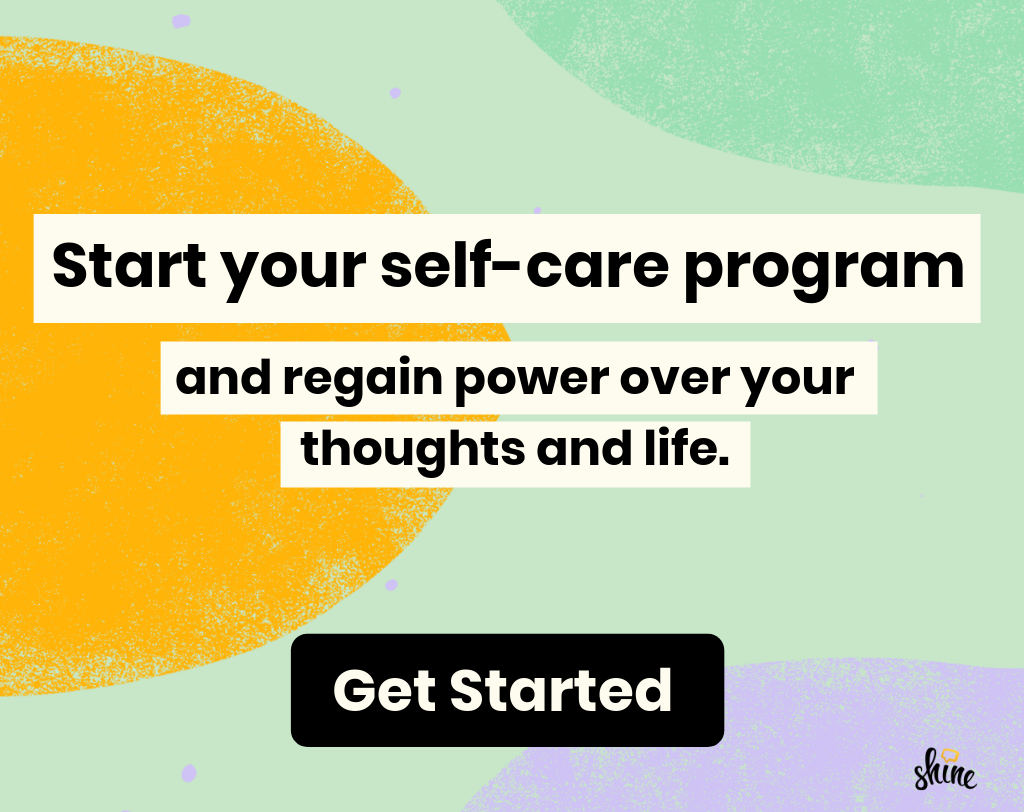What to Do When You're Not Getting the Respect You Deserve
We casually throw the word "respect" around a lot—often while belting along with Aretha Franklin.
But there’s a lot of nuance to the word that we don’t talk about enough.
Respect is often connected to how we perceive others and their worth, and there are so many factors that go into the act of showing someone respect. Sometimes it’s age, social status, or cultural norms that impact the respect given or received.
Regardless of what might trigger our admiration: When it’s not reciprocated, it can feel pretty awful.
That feeling of being slighted? It’s something we don’t acknowledge enough, and it’s the direct result of what we call the "respect gap"—or, the discrepancy between the respect you deserve and the respect you’re actually given.
For marginalized communities, the respect gap is too real. Unfortunately, it can take on many forms. The respect gap shows up in systemic ways for women, people with disabilities, people of color, LGBTQIA+ communities, and the intersections of all marginalized identities.
That feeling of being slighted? It’s something we don’t acknowledge enough, and it’s the direct result of what we call the "respect gap"—or, the discrepancy between the respect you deserve and the respect you’re actually given.
It can impact anyone—regardless of social status. And it can manifest as unequal pay, lack of acknowledgement, and more.
Take Serena Williams, for example.
Even as the greatest athlete alive, Williams experienced the respect gap during the historic 2018 U.S. Open.
In a new essay for Harper's Bazaar, the celebrated tennis player and entrepreneur opened up about the disrespect she felt after a few controversial calls by an umpire.
“I felt defeated and disrespected by a sport that I love—one that I dedicated my life to and that my family truly changed, not because we were welcomed, but because we wouldn’t stop winning,” she wrote.
Despite changing the face of modern tennis and professional sports in general, Williams still faces disprect on the court—and that sums up the respect gap pretty perfectly.
But the respect gap doesn’t just show up in high stakes situations—it happens in everyday life, too.
Author and academic Eve Ewing, for example, recently shared her experience with the respect gap on Twitter. While at an event, Ewing shared with someone that she was a professor. Their response? “Oh you really are a professor? I thought that was a joke.”
People responded to her tweets with similar stories of feeling undermined by others, unvalued, and slighted in different ways.
And it's not just something you can shrug off.
No matter how big or small the disrespect, it can have serious impact on one’s mental health.
"People of color experiencing the ‘respect gap’ often have feelings of frustration, irritability, decreased ambition, and in some cases low self-worth," therapist Naiylah Warren, L.M.F.T., tells Shine. Warren explains that workplaces or corporate cultures can oftentimes leave people feeling "like visitors...instead of intregal parts of their respecive teams."
"Despite diversity initiatives within workplaces nationwide, issues of race, class and culture remain overlooked with little to no corrective action," Warren says.
According to Psychology Today, those various moments when that respect gap pops up can take a toll on how we interact with others, as well as our self-esteem. It can lead to a cycle of slighting others if they’ve wronged you in the past, plus it can leave you feeling insecure and vulnerable. When that happens repeatedly, it can have a serious impact on your mental health.
But with all this in mind, what do you do if you’re experiencing the trappings of the respect gap? One thing's for sure: Navigating it isn’t easy, and it can be a daunting endeavor. But there are small ways you can advocate for yourself and help make the gap smaller and your recovery time quicker.
Accept Whatever Emotions You’re Experiencing
Eleanor Roosevelt has a famous quote that might just sum up an antidote to the pain of the respect gap: “No one can make you feel inferior without your consent."
It’s a powerful reminder that you ultimately have the power to let someone else’s comments impact you or not—but that can be a hard place to get to right away.
The first step? It’s sitting in whatever you feel in the moment.
Whether you’re frustrated, embarrassed, or upset, don’t be afraid to let those feelings wash over you. By experiencing your emotions in a mindful way, you’re less likely to bottle it up for an inopportune time.
Own your feelings and remind yourself of your power to move through them in a productive way.
Self-Love > Everything
In the famous words of RuPaul, “If you can’t love yourself, how in the hell you gonna love somebody else?” The sentiment remains the same when we’re talking about respect, too.
While you might not be able to control how someone else respects you, you definitely can control how you show respect for yourself.
For me, that looks like praising myself when I’ve done something I’m proud of, saying "no" to happy hours to respect my energy, and giving myself time to heal from sadness, among other things.
While you might not be able to control how someone else respects you, you definitely can control how you show respect for yourself.
Honoring your feelings and setting boundaries are just a few of the ways you can show up for yourself. I’ve found that when I respect myself and remember that I’m just a human, that bit of self-compassion can go a long way in helping me feel confident and secure regardless of the respect others may give me.
Create a Script
There’s nothing quite as uncomfortable as the feeling of being caught off guard, especially when it’s in regards to how you’re perceived or the respect you deserve.
While no two situations are likely to be the same, having a response might help you feel more confident in pushing back when someone disregards you.
It doesn’t have to be something you recite word for word, but even thinking about how you might respond in a situation can help.
What are things you might say in the face of someone not acknowledging your worth?
For example: If someone disregards your ideas, try practicing what you might say to draw attention to the discrepencies of their respect. ("It doesn't feel great when my contributions are overlooked and would like to find ways to make sure that this doesn't happen again!"). Or: If you're in a one-sided relationship, even clarifying what you might say to a friend can help you navigate your response to them in real-time.
Consider what your response might be, and pull from that if you find yourself experiencing the effects of the respect gap.
Talk It Out—Before, During, and After
Finding someone to talk to about the respect gap can help you feel validated in any feelings you might be experiencing.
When our identity or egos are impacted by someone’s disregard, however slight it may be, it’s easy to get wrapped up in thoughts like maybe I’m reading into it too much.
Similar to dealing with representation burnout, having a support squad that’s got your back can make a huge difference, whether they’re prepared to step up in the moment or help you process afterwards.
Finding spaces, maybe even in your workplace, can help too. "A possible solution to this problem is to produce diversity initiatives that provide people of color a safe space to call out the behaviors that make them feel disrespected, develop an action plan that addresses these behaviors (on both cultural/systemic levels), and implement a social mechanism for accountability," Warren says.
Whoever you choose to talk it out with, it's important to remember that discussing it with someone you trust—like the Shine community, a partner, friend, or family member—can help you tackle the respect gap head on.
You Don’t Have To Earn Respect
Here’s a hot take for you: Respect is something that should be given, not earned.
Imagine if we all operated with a baseline of respect for other people.
While that may seem like a dream world, it's something you can practice in your day-to-day by giving others respect—and giving yourself the same respect, even if it doesn't feel "earned."
Whether you remind yourself by filling up in ways that bring you joy or repeating affirmations, don’t forget: You are worthy of respect and you don’t have to earn your value or voice.
You are worthy of respect and you don’t have to earn your value or voice.
Read Next: Why We Need to Talk About—and Recognize—Representation Burnout
You're more than you stress and anxiety. Take back control using Shine's award-winning self-care program.

Shine is supported by members like you. When you buy through links on our site, we may earn an affiliate commission. See our affiliate disclosure for more info.


